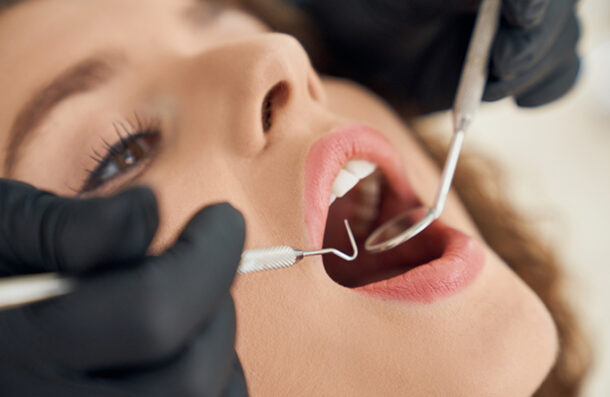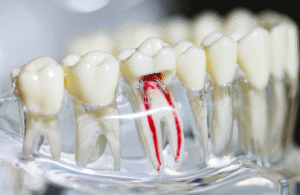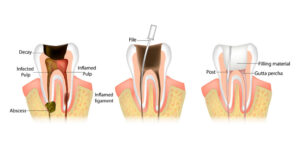Root Canal Treatment
- Home
- /
- Treatments
- /
- Advanced Dentistry
- /
- Root Canal Treatment
Also known as root canal treatment, endodontics is concerned with treating the infection at the centre of the tooth (the root canal system). The aim of root canal treatment at Larkham House is to prevent your tooth from requiring extraction by removing the damaged pulp and treating the infection.


At Larkham House Dental Practice, we specialise in providing high-quality endodontic (root canal) treatments designed to save natural teeth and restore oral health. Our team is committed to delivering expert care in a calm and comfortable environment, using the latest techniques and technology to ensure a smooth, pain-free experience.
Root canal treatment, or endodontic therapy, is a dental procedure used to treat infection or inflammation within the pulp—the innermost part of a tooth. The pulp contains nerves, blood vessels, and connective tissue. When this area becomes infected due to decay, trauma, or cracks, it can cause significant pain and potentially lead to tooth loss if left untreated.
The procedure involves:
The primary goal of root canal therapy is to preserve your natural tooth and eliminate pain or discomfort caused by the infection.
If you’re experiencing any of the following symptoms, it’s important to seek dental advice promptly:
Ignoring these signs can lead to worsening infection and the eventual loss of the tooth.

We understand that the thought of root canal treatment can cause anxiety—but with us, you’re in safe hands. Here’s what sets our practice apart:
To help you feel more prepared, let’s walk through what you can expect during your root canal treatment:
If you’re currently experiencing dental discomfort or have recently been advised that a root canal may be necessary, it’s important to act promptly. By seeking early treatment, you can protect your tooth and avoid more serious complications down the line.
Let us help you smile confidently again—with expert care you can trust. Contact us to book.
